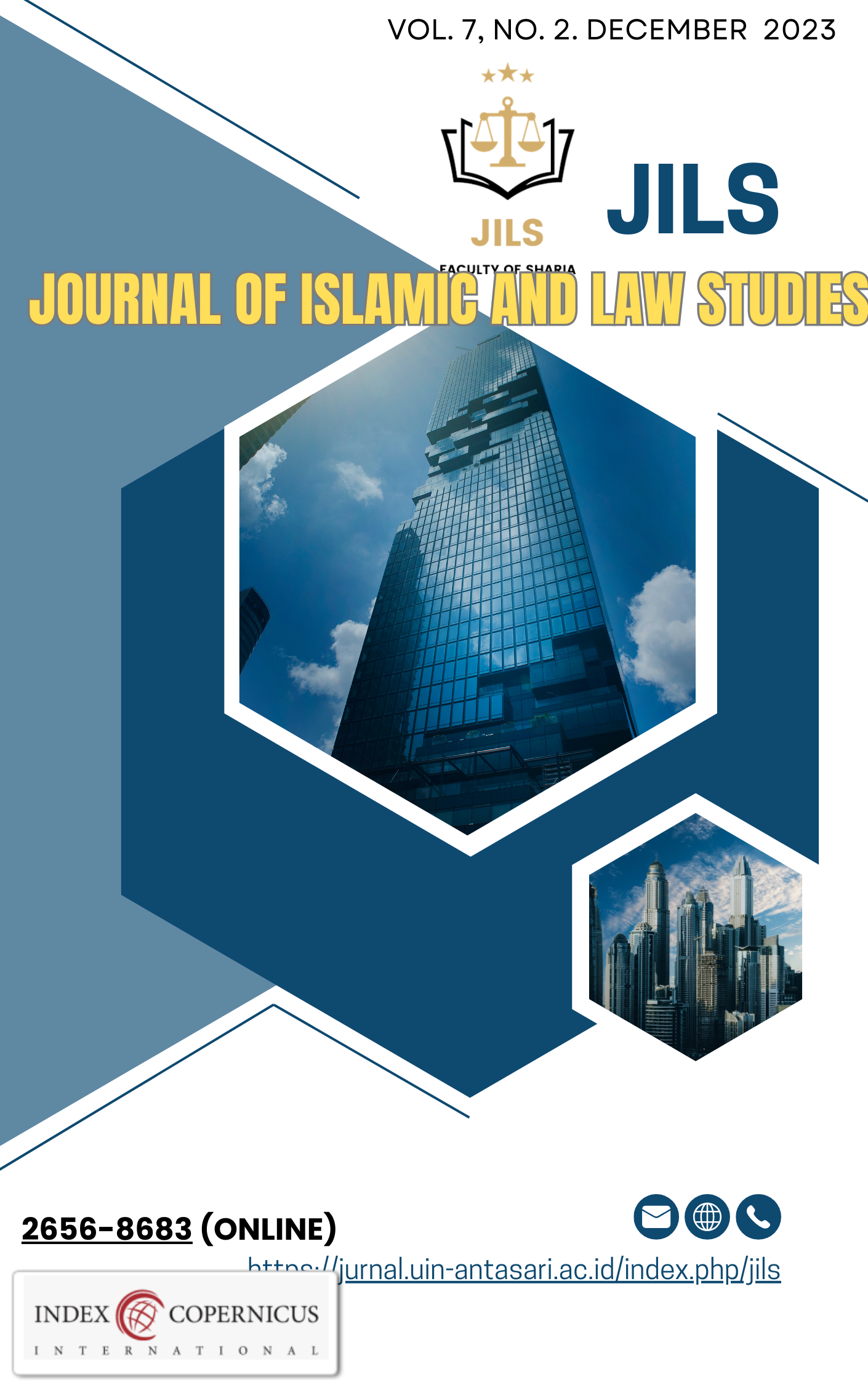Reaktualisasi Persyaratan Perempuan Menjadi Saksi Perkara Perdata Dalam Fikih Klasik Dan Korelasinya Pada Hukum Modern
DOI:
https://doi.org/10.18592/jils.v7i2.11550Abstract
Abstract: Testimony between men and women in muamalah (civil) cases in Islamic courts is explicitly verbis mentioned in Surah Al-Baqarah verse 282. But in the contemporary era whether the concept of testimony in the view of the law can be reactualized so as to cause two different points of view. This article proposes a reactualization of a new understanding of how the concept of male and female testimony in the contemporary era is in accordance with the times through an in-depth review by looking at two aspects, namely the influence of modernization on legal novelty and how it is viewed through an Islamic perspective. This research aims to gain a better understanding of the progressivity of Islamic law in line with the times. The research method used is normative law, including analysis of the arguments contained in the Qur'an and relevant Hadith and added some thoughts and literature from scholars. Based on this, the results show that the approach of modernization that affects legal novelty explains that Islamic law always has suitability in any time and place and the reactualization of understanding of the concept of gender in witnesses in Islamic courts can be adjusted by paying attention to legal facts in the trial. Keywords: Contemporary Law; Islamic Court; Witnesses; Women WitnessesDownloads
Published
2023-11-27
Issue
Section
Articles
License
Copyright (c) 2023 Akhmad Wafi, Almejiem Aditya Wijaya, Muhammad Noor Ridani, Budi Rahmat Hakim, Muhammad Haris

This work is licensed under a Creative Commons Attribution-NonCommercial 4.0 International License.
Authors who publish with this journal agree to the following terms:
- Authors retain copyright and grant the journal right of first publication with the work simultaneously licensed under a Creative Commons Attribution License that allows others to share the work with an acknowledgement of the work's authorship and initial publication in this journal.
- Authors are able to enter into separate, additional contractual arrangements for the non-exclusive distribution of the journal's published version of the work (e.g., post it to an institutional repository or publish it in a book), with an acknowledgement of its initial publication in this journal.
- Authors are permitted and encouraged to post their work online (e.g., in institutional repositories or on their website) prior to and during the submission process, as it can lead to productive exchanges, as well as earlier and greater citation of published work.




